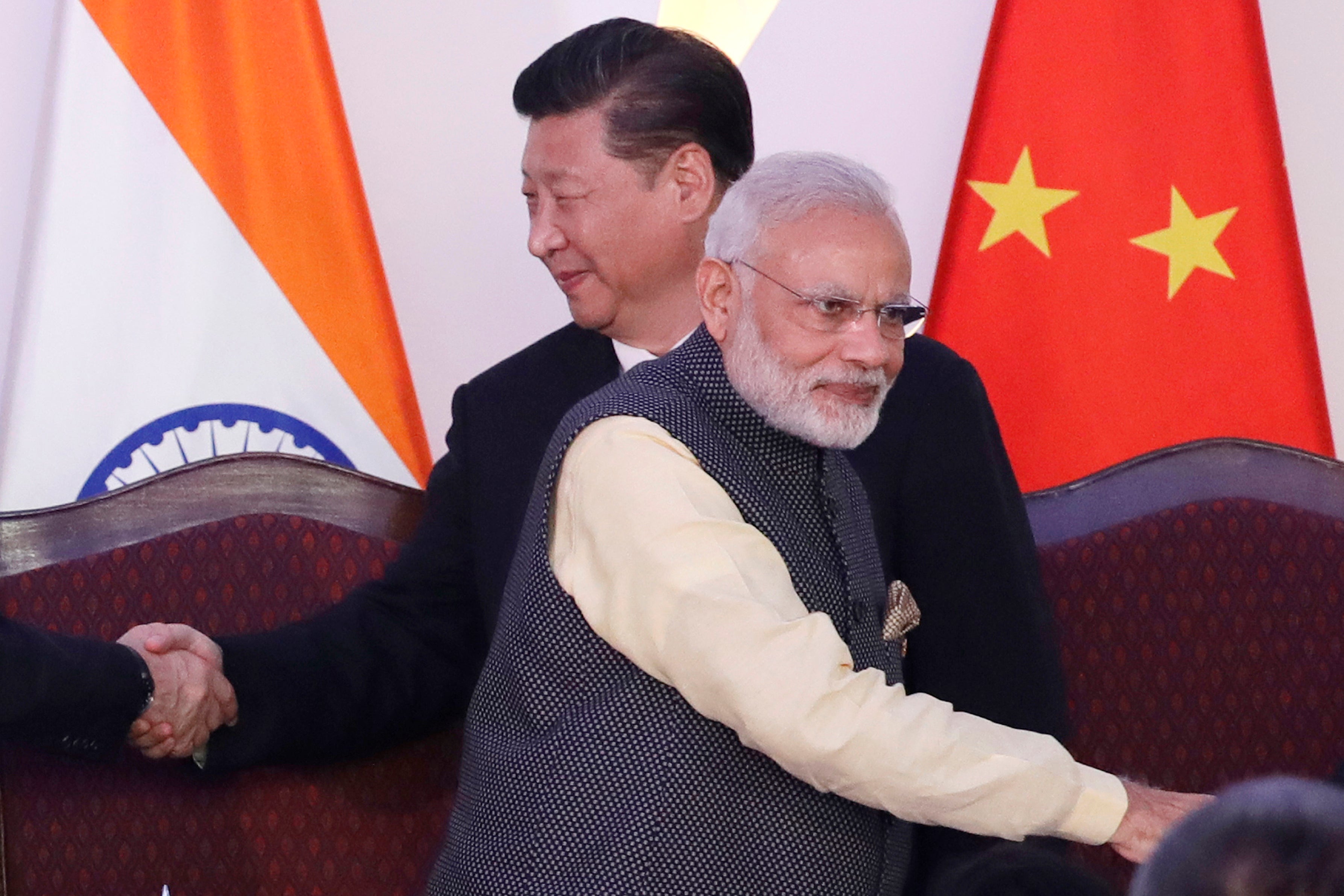How China and India expelled each other’s journalists in tit-for-tat visa spat
China’s foreign ministry says Beijing had ‘no choice but to take appropriate countermeasures’

Your support helps us to tell the story
From reproductive rights to climate change to Big Tech, The Independent is on the ground when the story is developing. Whether it's investigating the financials of Elon Musk's pro-Trump PAC or producing our latest documentary, 'The A Word', which shines a light on the American women fighting for reproductive rights, we know how important it is to parse out the facts from the messaging.
At such a critical moment in US history, we need reporters on the ground. Your donation allows us to keep sending journalists to speak to both sides of the story.
The Independent is trusted by Americans across the entire political spectrum. And unlike many other quality news outlets, we choose not to lock Americans out of our reporting and analysis with paywalls. We believe quality journalism should be available to everyone, paid for by those who can afford it.
Your support makes all the difference.India and China have effectively expelled almost all of each other’s journalists in what is being perceived as yet another body blow to diplomatic ties between the nuclear neighbours.
The two Asian giants are embroiled in a spat over the issuance and renewal of visas for each other’s journalists that effectively means none will be left covering their respective countries for the first time in decades, according to a Wall Street Journal report.
Asked about the deterioration in press access between the two nations, China’s foreign ministry laid blame on the Indian government for arbitrarily shortening visas for Chinese journalists and failing to renew them since 2020.
China said it has been forced to take action, accusing India of “unfair and discriminatory” treatment of Chinese journalists.
“The visa of the last remaining Chinese journalist in India has also expired,” said the ministry’s spokesperson Mao Ning.
She said China had “no choice but to take appropriate countermeasures to safeguard the legitimate rights and interests of the Chinese media”, but did not elaborate on what the measures were.
“What I can tell you is that for a long time, Chinese journalists have suffered unfair and discriminatory treatment in India, and in 2017, the Indian side shortened the visa validity of Chinese journalists to three months or even one month for no reason,” she claimed.
The Indian government had rejected visa renewals for the remaining two Chinese state media journalists in May, reported the WSJ. One of the journalists works for Xinhua while the other works for China Central Television.
Of the four Indian journalists based in China, two have not been granted visas to return to the country. A third Indian journalist was reportedly told that his accreditation had been revoked, but he is still in China.
Ananth Krishnan, a correspondent for The Hindu newspaper, tweeted that Indian media coverage from China in the future could only come from organised visits. He said the country is “down to only one accredited Indian reporter in Beijing – and unfortunately, probably zero soon”.
Ms Mao said the status of Indian journalists in her country will depend on whether India “can meet China halfway” on the issue.
“Some Indian journalists have been working and living in China for more than 10 years, and we are willing to continue to (facilitate them), but it depends on whether the Indian side can meet China halfway and provide the same facilitation and assistance to Chinese journalists in India,” she said.
The visa spat between the countries is bound to increase the acrimony between the two countries that have had a dwindling bilateral relationship since deadly border clashes in June 2020.
The two countries have fought over the contentious border that separates them and have amassed large numbers of their soldiers along it.
The straining ties also come as India leans closer to the US and its Western allies, united by their shared concern over an increasingly assertive China.
Neither India nor China have a strong track record for press freedom, according to the annual rankings produced by Reporters Without Borders. The media watchdog ranked India 161 and China 179 out of 180 countries.
In 2020, China expelled several US journalists after Washington moved to limit the number of Chinese state media reporters in the country.



Join our commenting forum
Join thought-provoking conversations, follow other Independent readers and see their replies
0Comments